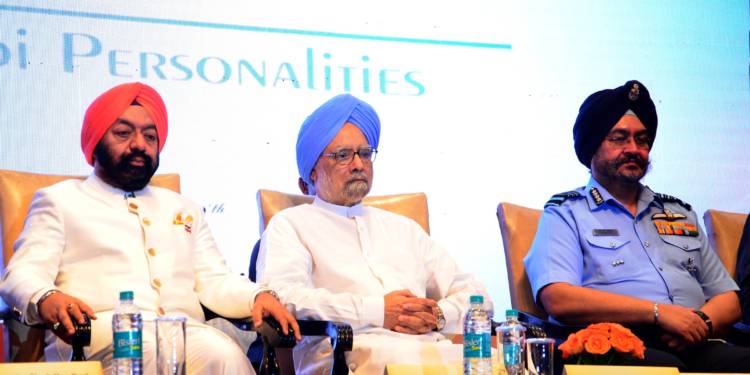Exposing the seriousness of the Congress regarding national security, recently-retired Air Chief Marshal BS Dhanoa on Friday revealed that the Manmohan Singh-led UPA government in 2008 had turned down IAF proposals to strike at Pakistan. Dhanoa was speaking at a guest lecture at the Veermata Jijabai Technological Institute in Mumbai. Dhanoa said, “IAF had proposed retaliatory action for the December 13, 2001, Parliament attack and the November 26, 2008, terror attacks in Mumbai… defence forces were capable of entering Pakistan and dismantling terrorist camps, but the government did not agree to this approach… this gave the enemy confidence that India will not retaliate.”
He added, “This was not accepted. Pakistan owes its exalted position in society to its propagation of threat from India,” Dhanoa said.
Notably, it was during the tenure of ACM Dhanoa as Indian Air Force chief that India carried out the airstrike on Balakot in February, the first cross-border attack deep into Pakistan since the 1971 war. Elaborating on the proposal to strike after the terror attacks on Mumbai in November 2008, Dhanoa said, “We knew where the terror camps were located in Pakistan and were ready. But it is a political decision whether to carry out a strike or not.”
This is hardly the first when such a revelation has come to fore as another former ACM had revealed that the IAF was ready to take revenge for the devastating 2008 Mumbai terror attacks but the then UPA government ‘blocked’ any action on the surgical strike option. A year after the Mumbai attacks, former ACM Fali Homi Major had stated that the Manmohan Singh government had “never made up its mind”. Major then said, “The government never made up its mind to go to war. I know the sentiment of the entire country was that of anger and disgust. The Indian Air Force was ready to strike at Pakistan. We had our contingency ready and were well prepared.”
Major also claimed in 2017 that the Indian Air Force had assured Manmohan Singh that everything from “logistics to weapons and planes” was ready to strike terrorist camps in Pakistan-occupied Kashmir (PoK) after the Mumbai attacks. He described the indecision as a lost opportunity.
Similarly, former Wing Commander Mohonto Panging who had served in 2008 had claimed that Mirage 2000 and Su-30MKI aircraft were ready to strike Muzaffarabad. Panging had told Times of India, “After Mumbai 26/11 attacks, we had planned a similar air strike on Muzaffarabad. I was leading the Sukhoi squadron.” He claimed the strike units were deployed “and waited for nearly a month”, but the government approval did not come.
It must be mentioned here that the then Atal Bihari Vajpayee government took an aggressive stance as revealed in ‘My Country My Life’ the autobiography of then Home Minister LK Advani in order to give a befitting response to Pakistan. Soon after the attack on Parliament by Jaish-e-Mohammad, the government ordered a mass mobilisation of the military in December 2001. The operation codenamed as ‘Operation Parakram’ continued for several months and was called off after Pakistan, under international pressure, agreed to crack down on terrorist groups.
The tragic 26/11 Mumbai attacks had lasted for four days killing 166 people and injuring over 300. The ghastly attacks began on November 26, 2008 and lasted for four days killing 166 people and injuring over 300. Around 10 Lashkar-e-Taiba terrorists, trained and equipped by Pakistan, had arrived at Mumbai via sea route from Pakistan and to carry out a series of coordinated shooting and bombing attacks across the city.
Congress had simply ignored the sensitivity of the situation and the need to retaliate. If action had been taken then, Pakistan would have got a befitting reply, nonetheless, it’s Congress which only cares about its family, its image, its power and not the country.


























